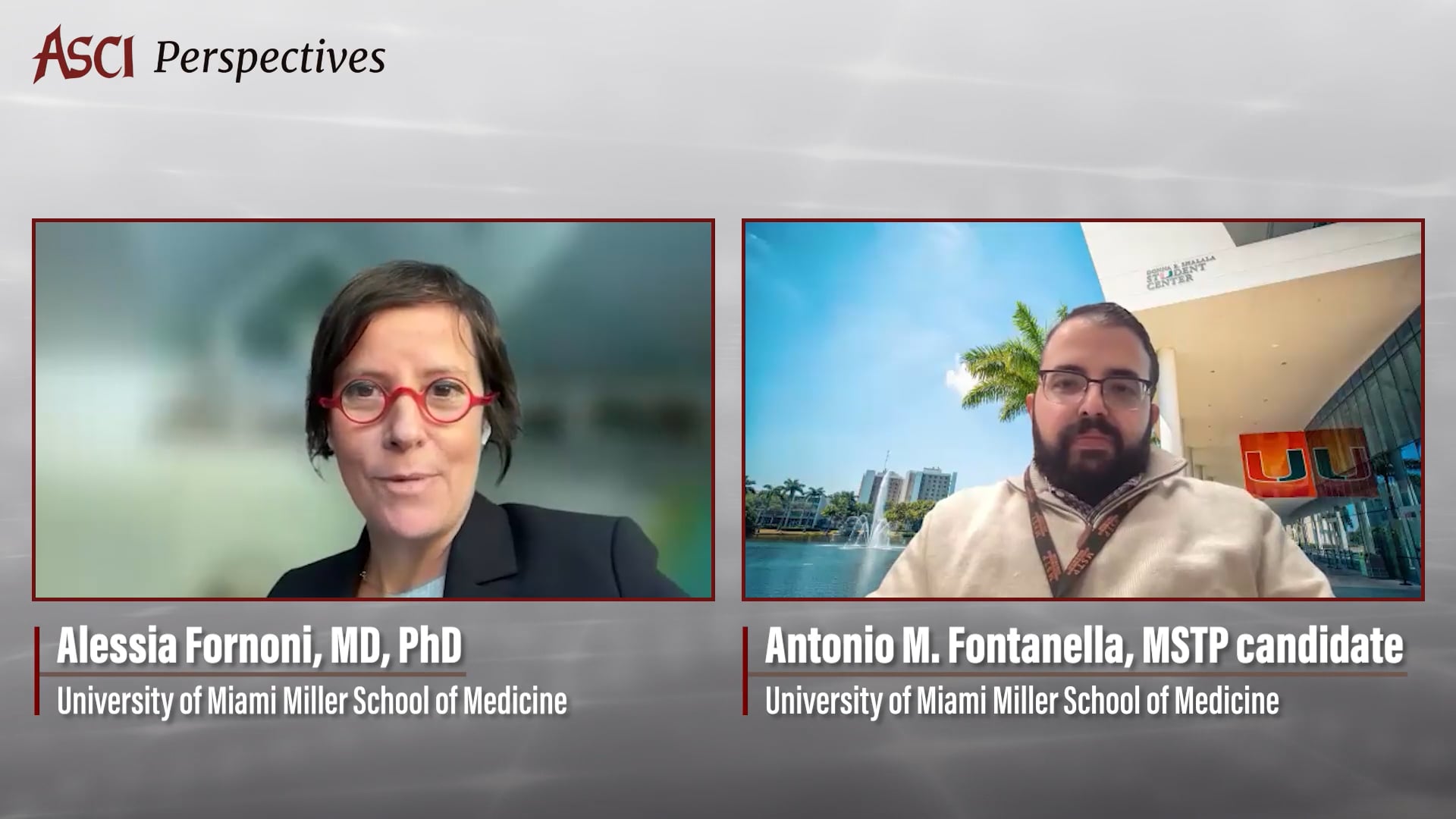Nominations open for mid-career member awards, 2024
The ASCI is pleased to call for nominations for awards recognizing the scholarly achievements of mid-career members:
The Marian W. Ropes, MD, Award recognizes a middle-career woman physician-scientist. The annual award honors Dr. Ropes (1903–1994), a pioneer both as a researcher on the role of synovial fluid in joint diseases and as a woman in academic medicine. She was the first woman documented to have been elected to the ASCI. The recipient of this award receives a $10,000 honorarium, will be recognized at the ASCI’s 2024 annual meeting, and gives the Ropes Lecture at the 2025 meeting.
The Louis W. Sullivan, MD, Award recognizes a middle-career physician-scientist who is underrepresented in medicine and science. The award honors Dr. Sullivan (born 1933), a hematologist, health care advocate, and policy leader — having served as US Secretary of Health and Human Services — and who was the first Black physician-scientist elected to the ASCI. The recipient of this award receives a $10,000 honorarium, will be recognized at the ASCI’s 2024 annual meeting, and gives the Sullivan Lecture at the 2025 meeting.
ASCI members who were elected in 2019 or more recently may be nominated. Additionally:
- For the Ropes Award, only female members are eligible for nomination.
- For the Sullivan Award, only UiMS members are eligible for nomination.
The deadline for receipt of nominations is November 27, 2023, at 11:59 pm Eastern (extended from November 13). Nominations will be screened to ensure they are complete and fit the award criteria. The ASCI’s Diversity, Equity, and Inclusion Committee will review nominations and submit its recommendations to the ASCI Council for approval. We expect to notify nominees about the outcome by January 2024.
Nominators:
- must be an ASCI member, except for current members of the ASCI Council and the ASCI Diversity, Equity, and Inclusion Committee, and
- must provide a statement regarding the nominee (500-word limit).
Nominees:
- must fit the criteria noted above and may not be current members of the ASCI Council and the ASCI Diversity, Equity, and Inclusion Committee;
- may be nominated only for one ASCI award (for example, a nominee for the Ropes Award may not be nominated for the Sullivan Award, Korsmeyer Award, or Harrington Prize);
- must provide the following:
- a personal statement (750-word limit) on their scientific achievements, with attention to relevant personal and career history (including a statement of diversity), mentoring experience, and service to the community;
- a full curriculum vitae; and
- 3 most-significant publications, each with a 50-word annotation, followed by the member’s role in the publication, the journal name and publication year, and the Pubmed ID noted as “PMID:12345”;
- and must complete the ASCI’s demographic survey.
To start a nomination:
- Access your member account
- Go to the “Nominations” tab
- In the section for the award of interest:
- If you are the nominee, select the “I’m the nominee” option to start your part of the nomination (only you have access to this information); note that this option will not be available for the Ropes Award for male members.
- If you are the nominator, select “I’m the nominator” option, then search for your nominee. Only nominees who were elected starting 2019 will appear in the results. Note: for the Ropes Award, you will only be able to select a nominee who is a woman; for the Sullivan Award, you may select anyone who is within the election-year window, but nominations will be screened (based on the information the nominee provides in the demographics survey) to ensure that nominees fit the UiMS criterion.
Definition of UiMS
The ASCI defines underrepresented in medicine in science as follows: Underrepresented in medicine and science (UiMS) refers to populations that are underrepresented relative to their numbers in the general US population. This includes, but is not necessarily limited to, physician-scientists who identify in the following racial and/or ethnic groups: Black/African American, Hispanic or Latin American, Native American/American Indian or Alaska Native, and Native Hawaiian and other Pacific Islander; individuals with disabilities: physical or mental impairment that substantially limits one or more major life activities; and those with an educationally or financially disadvantaged background.


